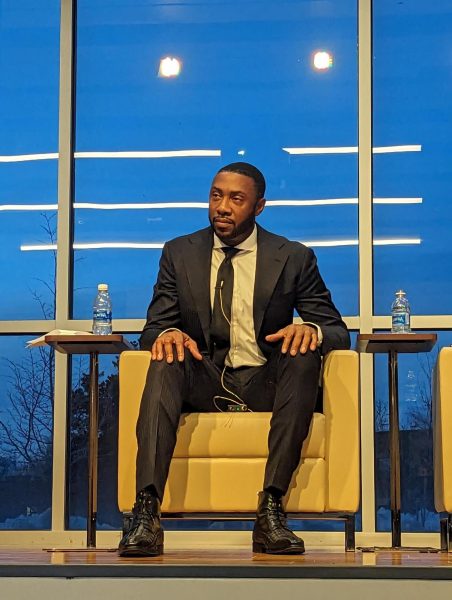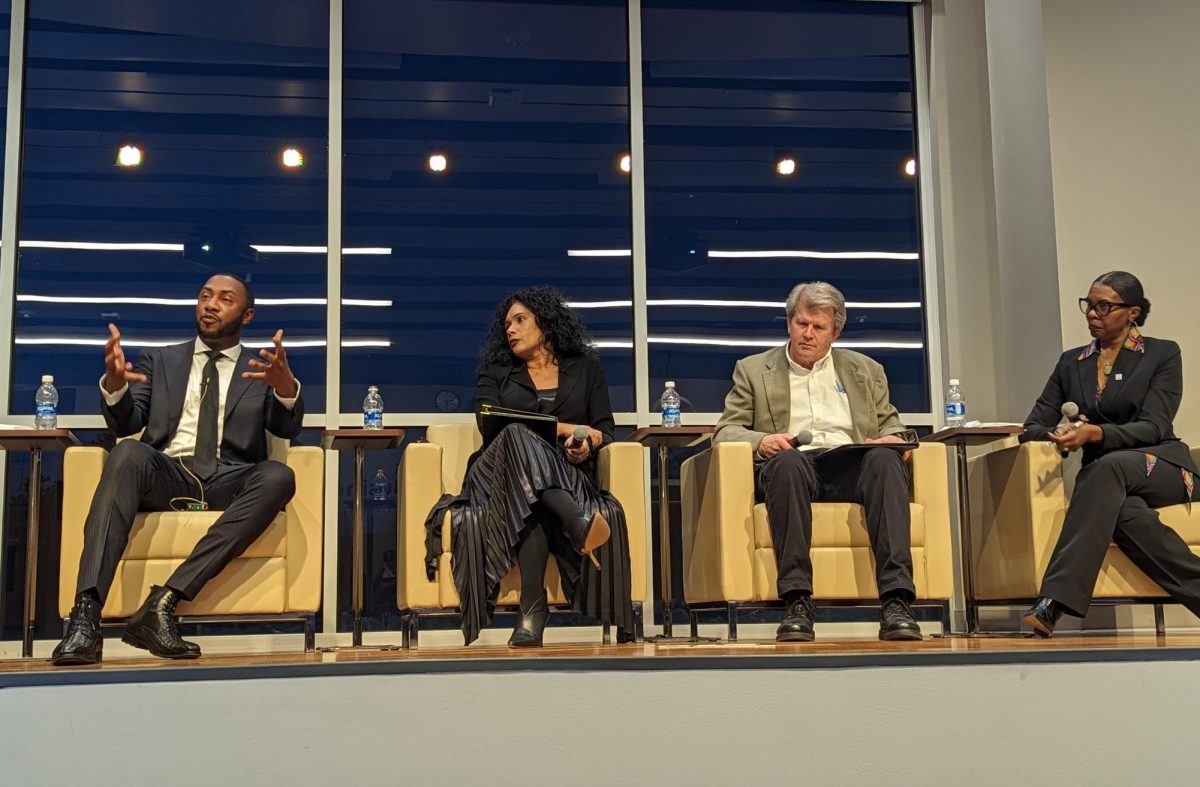As a part of their 40th Martin Luther King Jr. Week celebrations, the University of Utah held the “MLK Economic Plenary” to dive into issues surrounding racial economic disparities and strategies on how to achieve better equality in society through access to financial infrastructure and resources.
The keynote speaker was Ashley Bell, former White House policy advisor, who is the co-founder and CEO of Redemption Holding Company, a Black-owned organization supported by Bernice King, the daughter of Dr. King and Coretta Scott King, which aims to expand access to capital for people of color.
Having received early support from the Kings’ daughter with RHC, Bell said being close to Bernice King “expanded and changed” the way he sees the world.
“I’ve never been around someone that has been so entrenched in a way of seeing the world as built on love,” Bell said. “I’ve never seen someone who sees everything through the lens of compassion, even for people who you would think would be an enemy.”
RHC is in the process of acquiring Utah-based Holladay Bank & Trust to convert it into a minority depository institution. Becoming an MDI requires that at least 51% of the voting stock is owned by minorities.
These institutions typically provide a higher percentage of home mortgages and small business loans to minority and low-income borrowers compared to others, as defined by Utah Business.
Pending receiving regulatory approval and completing the acquisition, RHC’s bank, named Redemption Bank, would become the first Black-owned bank in the Mountain West region and the 17th Black-owned bank in the U.S.
“When they ask us, ‘Why Salt Lake?’ I always say I don’t think there’s any other place that we could build this bank the way we’re doing it,” Bell said. “I do believe that there’s a special magic in this valley … that really sets Salt Lake City apart.”
When speaking on why he believes starting Redemption Bank and MDIs in general is important, Bell shared a quote from Dr. King that he said he doesn’t hear enough: “The inseparable twin of racial injustice [is] economic injustice,” King said in a 1958 speech in New York.
“You cannot have a conversation in America about racial justice unless you’re talking about economic justice as well,” Bell said.
One of the main reasons RHC is starting Redemption Bank, Bell said, is the historically deep racism that still exists within the major U.S. banking institutions, particularly with loans and interest rates.
A 2020 Northwestern University analysis found that racial disparities in the mortgage market haven’t declined much in the last four decades when it comes to discrimination in loan denial and interest rates.
“In this country, Black, brown, Indigenous people know that our country’s financial institutions have fundamentally been built to limit access to capital [for] these communities,” Bell said. “That is not capital — that is counterfeit capitalism.”
Bell emphasized the overall goal of Black-owned banks: providing an opportunity for people of color to have “the privilege that so many others have to walk into a building or to apply online for a loan to chase their dreams.”

“Maybe it’s their first business and it’s a personal loan, maybe it’s their first car,” Bell said. “But to apply for a loan not having to worry about whether or not their race will be determinative of whether or not they’re told yes or no. That’s it.”
The keynote address was followed by a panel of Utah experts who joined Bell in exploring economic disparities and ways for communities to become more equitable through accessibility to financial resources.
What’s unique about Holladay Bank & Trust being acquired by Black investors and being converted into an MBI is that it’s the first foundation in history to do that, said Sui Lang L. Panoke, senior vice president of culture at Zions Bank and one of the panelists.
“A white-owned bank is being converted into a Black-owned bank [for the first time],” she said. “… What does that mean? What does that say to you? To me, it says there is value in being Black-owned.”
Bell concluded his last answer in the panel by saying that he believes Redemption Bank can be the “first integrated bank.”
He explained this means that while the bank will focus on serving people of color, the whole community needs to contribute money to the bank in order to make it sustainable.
“While you’re sleeping, let that turn into a small business loan for a woman-owned business, let that turn into the first home loan for a graduate from BYU who’s got a good credit score but just needs an opportunity,” Bell said. “You can be changing somebody’s life just by putting your money somewhere where it’s doing things that you know reflect who you are.”



